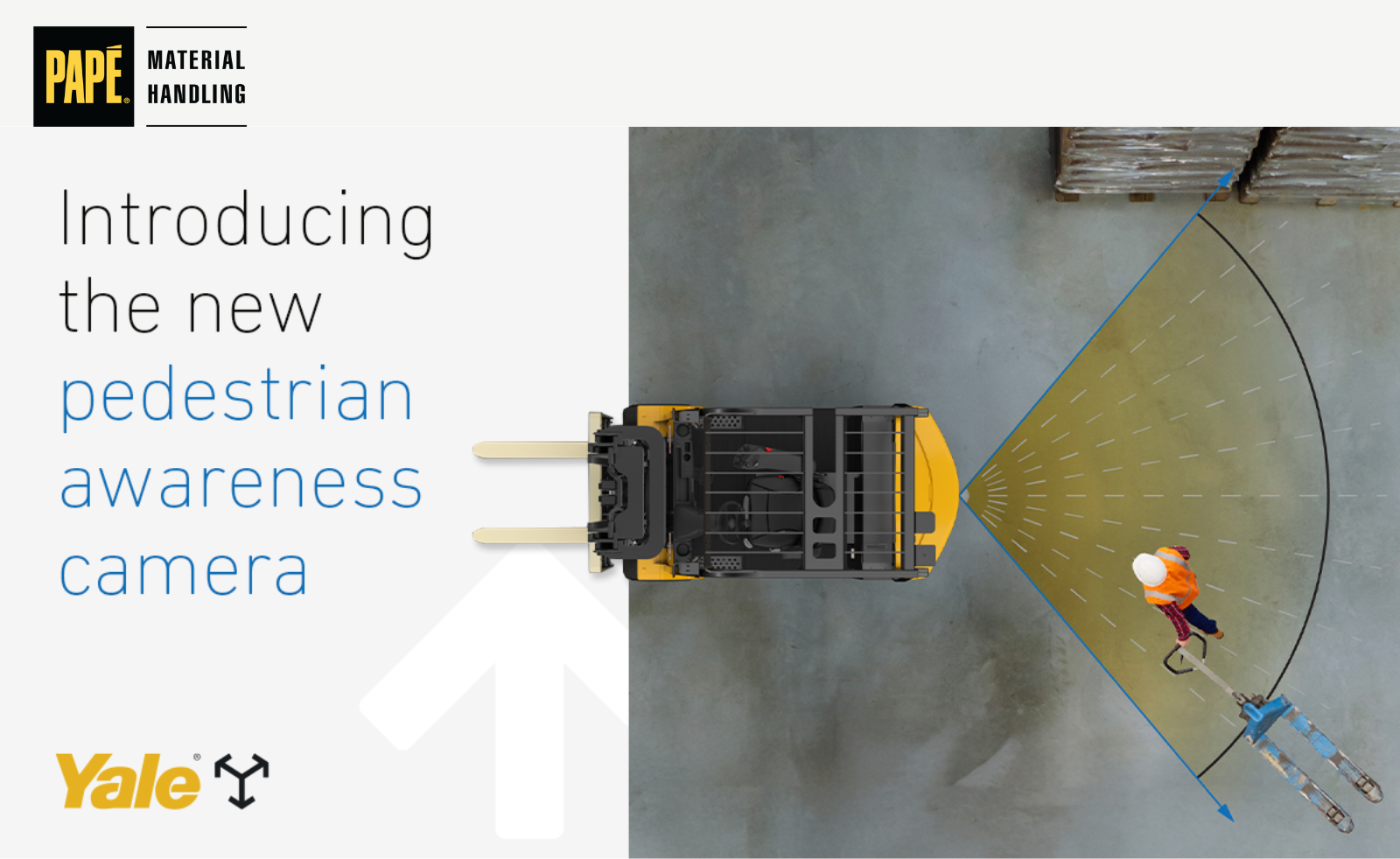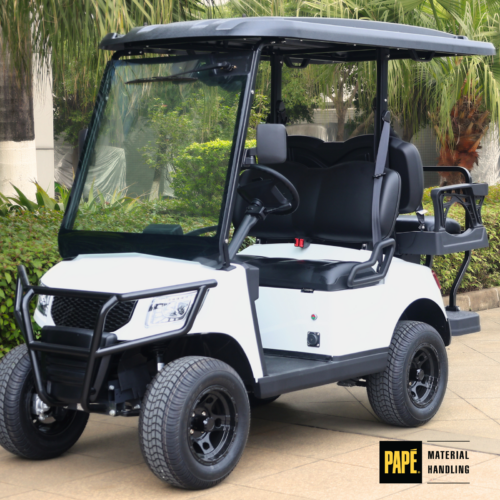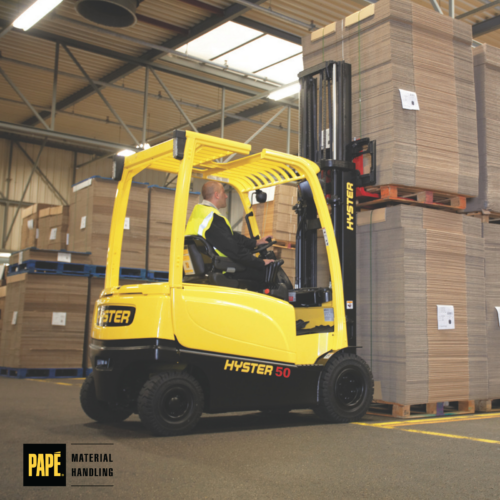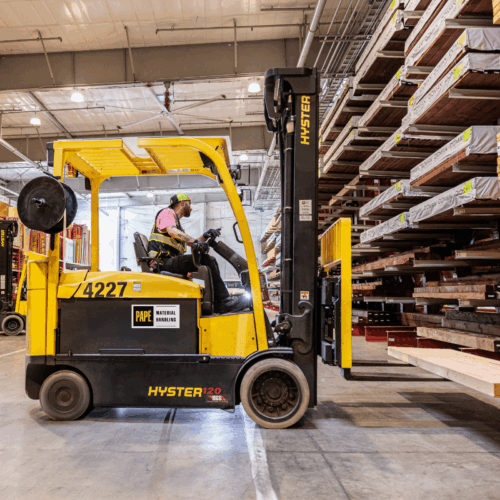Forklift safety isn’t about adding one more alarm. It’s about making the job safer, smarter, and more responsive.
That’s where Yale Reliant comes in. As one of the most trusted names in material handling, Yale has developed a suite of innovative operator assistance technologies designed to reduce risks and reinforce forklift best practices. Their award-winning Yale Reliant system is no longer just a promise; it’s a proven tool. With over 24 million hours of real-world runtime, the technology is helping warehouses move confidently toward safer, smarter operations.
With over 6,000 Yale trucks already deployed with Reliant and 59 models available with the technology, Yale Reliant is a mature, scalable solution ready to make a difference today—not in five years. It’s already delivered over 24 million hours of performance in the field since 2021.
By combining ADS, Object Detection, and Proximity Detection, Reliant provides your warehouse safety through:
- Real-time, automatic response to unsafe operation
- Measured control adjustments (like slowing down or limiting lift)
- Visual alerts and operator feedback
- Proven reinforcement of forklift best practices
Inside Yale Reliant’s Object Detection System
One of the highlights at the PMH forklift safety event in Seattle was Brandon Harwell’s deep dive into the core of Yale Reliant’s Operator Assist System (OAS).
See Yale Reliant in action—watch the video of the Seattle forklift safety event here.
“We want people to go home the same way they came to work,” Harwell said. “We’ve got families, and safety should never be negotiable.”
At the center of that system is Object Detection (OD), which uses 2D LiDAR to scan the area behind the lift truck—covering a broad 170° field of view. Whether it’s a leg, a safety cone, or warehouse racking, OD doesn’t discriminate. It detects obstacles in real time, enabling the truck to automatically slow down before contact ever comes close.
As Harwell demonstrated during the event, as a forklift approaches within 10 feet of an object, the system begins to decelerate, often reducing speed from 5 mph to just 1.5 mph. This controlled deceleration buys operators precious time to respond and avoid collision.
Brandon Harwell on Forklift Stability and Awareness
With a background in exercise science, Harwell compared forklift stability to human biomechanics. “That stability triangle—the center of mass—is so important, especially with lifting loads,” he said.
That concept is at the heart of Advanced Dynamic Stability (ADS), another core component of the Yale Reliant system. ADS continuously monitors the combined center of gravity of the truck and the load it carries. When conditions approach unsafe thresholds—such as high mast elevation, improper tilt angle, or unbalanced weight—ADS makes measured adjustments to performance.
These aren’t jarring overrides. Instead, operators experience a smooth reduction in lift of travel speed, giving them time to correct course. Even better, the system explains its interventions via the display screen, reinforcing training and creating a feedback loop that builds better habits.
The Role of 2D LiDAR and Controlled Deceleration
During the live demonstration, Harwell showed how Object Detection works in a real-world scenario. A forklift ran at full speed toward a cone simulating a pedestrian. The system began slowing the truck before it reached the hazard—demonstrating the split-second advantage it gives operators. “You’re buying a little bit of extra time with that controlled decel,” Harwell explained.
In a warehouse environment where approximately 25,000 forklift-related injuries occur annually, and where each injury averages $42,000 in cost, those extra seconds can mean the difference between a close call and a catastrophic event.
Proximity Detection: A Second Set of Eyes
Object Detection protects what’s behind the truck, but Yale Reliant goes even further. With Proximity Detection (PD), powered by ultra-wideband (UWB) technology, the system establishes a 360° “safety sphere” around the truck. This includes areas outside the operator’s line of sight.
When two trucks with Yale Reliant approach each other, or when a pedestrian wearing a badge intervenes, reducing speed and, in the case of pedestrians, vibrating the badge to alert them of nearby traffic.
“Imagine two force fields meeting,” Harwell said. “When that happens, the truck slows down, and the person gets a warning. It’s that simple.”
Together, OD and PD form Collective Detection (CD), a multi-layered safeguard that helps turn risky situations into manageable ones—and manages the unmanageable.
Reducing Risk Without Replacing Operators
What sets Yale Reliant apart from many warehouse automation tools is that it assists without replacing the operator. The human is still in control—but the system helps guide decisions. “We’re not trying to become the operator with technology,” Harwell explained. “That would be robotics; we’re just giving the operator more tools.”
Whether it’s regulating tilt angle or warning of pedestrians, Reliant reacts in real time based on how the lift truck is being operated and what’s happening around it.
This makes Reliant especially helpful in today’s high-turnover landscape. With warehouse employee churn averaging 40% annually, fewer operators come to the job with experience—and those who do are often stretched thin. Yale Reliant helps reinforce training and safety culture, even when your team is new or growing fast.
Don’t Wait for the Next Close Call
Many warehouse incidents happen fast and without warning:
- A pedestrian walks in front of a reversing truck.
- A load tips due to excessive tilt or uneven terrain.
- An operator turns too quickly and strikes racking.
- A truck is moving too fast through a congested area.
These situations might be common today—but with Yale Reliant, they don’t have to be tomorrow.
Ready to Take the Next Step?
Whether you’re a purchasing manager, warehouse safety officer, or fleet manager, Yale Reliant represents a real, measurable improvement to forklift safety and efficiency. It’s a solution designed for today’s workforce and tomorrow’s challenges.
Contact Papé today to request a quote and take the next step toward forklift safety.







